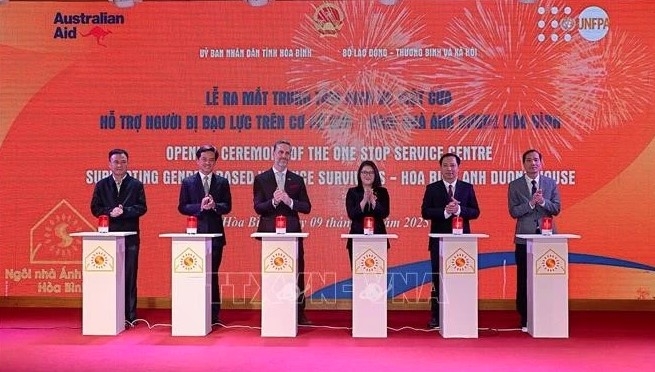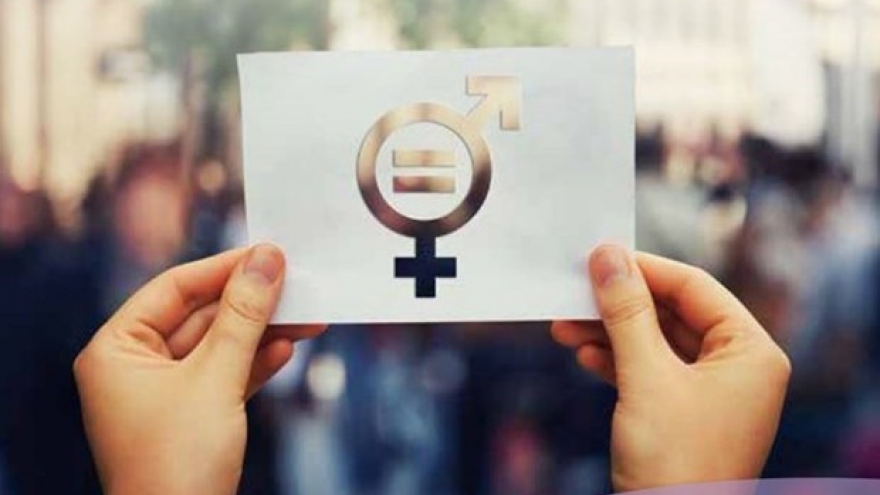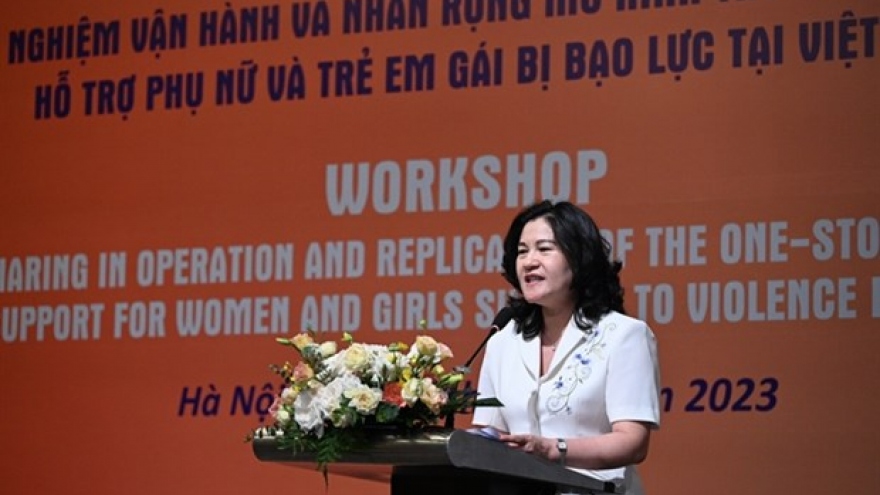Hoa Binh launches support services for gender-based violence survivors
Vietnam’s determination to promote gender equality and to address gender-based violence is reaffirmed through the opening of another One-Stop Service Centre (Anh Duong House) in the northern province of Hoa Binh on January 9.

Jointly organised by the Ministry of Labour, Invalids and Social Affairs (MoLISA), the United Nations Population Fund (UNFPA) in Vietnam, the provincial People’s Committee and other international organisations, Anh Duong House, the fifth of its kind in Vietnam, officially opened in Hoa Binh today to provide essential, comprehensive and integrated services to women and girls who experience or are at risk of gender-based and domestic violence. As with all One-Stop Service Centres, Anh Duong House is kitted out to support those living with disabilities as well as serve local ethnic minority communities.
The house offers a wide range of services meeting international standards including health care, psychosocial support, counselling, social welfare services, emergency shelters, police protection, legal and justice services and referrals.
Le Khanh Luong, director of the Gender Equality Department under the Ministry of Labour, Invalids and Social Affairs, stated at the inauguration that the opening of Anh Duong House in Hoa Binh is necessary as it brings the integrated services closer to survivors of gender-based violence, showing joint commitment of authorised bodies, organisations to eliminating violence against women and children in particular and in achieving gender equality in general, the national strategy on gender equality 2021-2030, the National Programme on GBV Prevention and Response 2021-2025 and the amended Law on Domestic Violence Prevention and Control, which was adopted by the National Assembly in November 2022.
Vice Chairman of the Hoa Binh People’s Committee Nguyen Van Toan highlighted the significant contribution of Anh Duong House to the province’s efforts to address gender-based violence and domestic violence. He also confirmed the local authorities’ strong commitment to facilitating the establishment and the effective and sustainable operation of Anh Duong House.
In the first six months of 2024, 26 cases of domestic violence were reported with 32 victims, of which women accounted for 78%. Within the same period, Hoa Binh's police also received and resolved 11 cases of child sexual abuse and five cases of child abuse.
UNFPA Representative in Vietnam Matt Jackson affirmed that UNFPA has been collaborating closely with the Ministry of Labour, Invalids and Social Affairs in addressing gender-based violence and in providing support to ensure that survivors of violence are treated with respect and dignity.
He said that the services to be provided by Anh Duong House are tailored to meet the unique needs of each individual, promoting respect and non-discrimination. Importantly, the services are provided without judgment or stigma. The One-Stop Service Centre also serves as a hub for community education helping to shift harmful social norms and attitudes that perpetuate violence. To ensure the sustainability and long-term impact of the model, UNFPA is committed to joining the Government of Vietnam and all partners to address the urgent need for survivor-centred services nationwide. This will help to address gender-based violence comprehensively and consistently across Vietnam, ensuring that all survivors can access timely and quality support services, regardless of their location or situation.
Anh Duong House in Hoa Binh province was established under the project “Elimination of Violence Against Women and Children in Vietnam 2021–2025” funded by the Department of Foreign Affairs and Trade (DFAT) of the Government of Australia. Among the set goals, all women and children in Vietnam, including those most vulnerable, are able to live a life free from violence.
The first Anh Duong House was opened in Quang Ninh in 2020, followed by Anh Duong Houses in Thanh Hoa, Da Nang and Ho Chi Minh City, transforming the response to GBV in Vietnam. They have provided integrated services to 1,666 survivors and handled over 26,260 hotline calls.
These centres have set a powerful example of providing comprehensive support to GBV survivors, demonstrating how multisectoral coordination, fostered through partnerships with MOLISA, local authorities and international partners, can transform responses to violence and create safe, accessible pathways to recovery.


